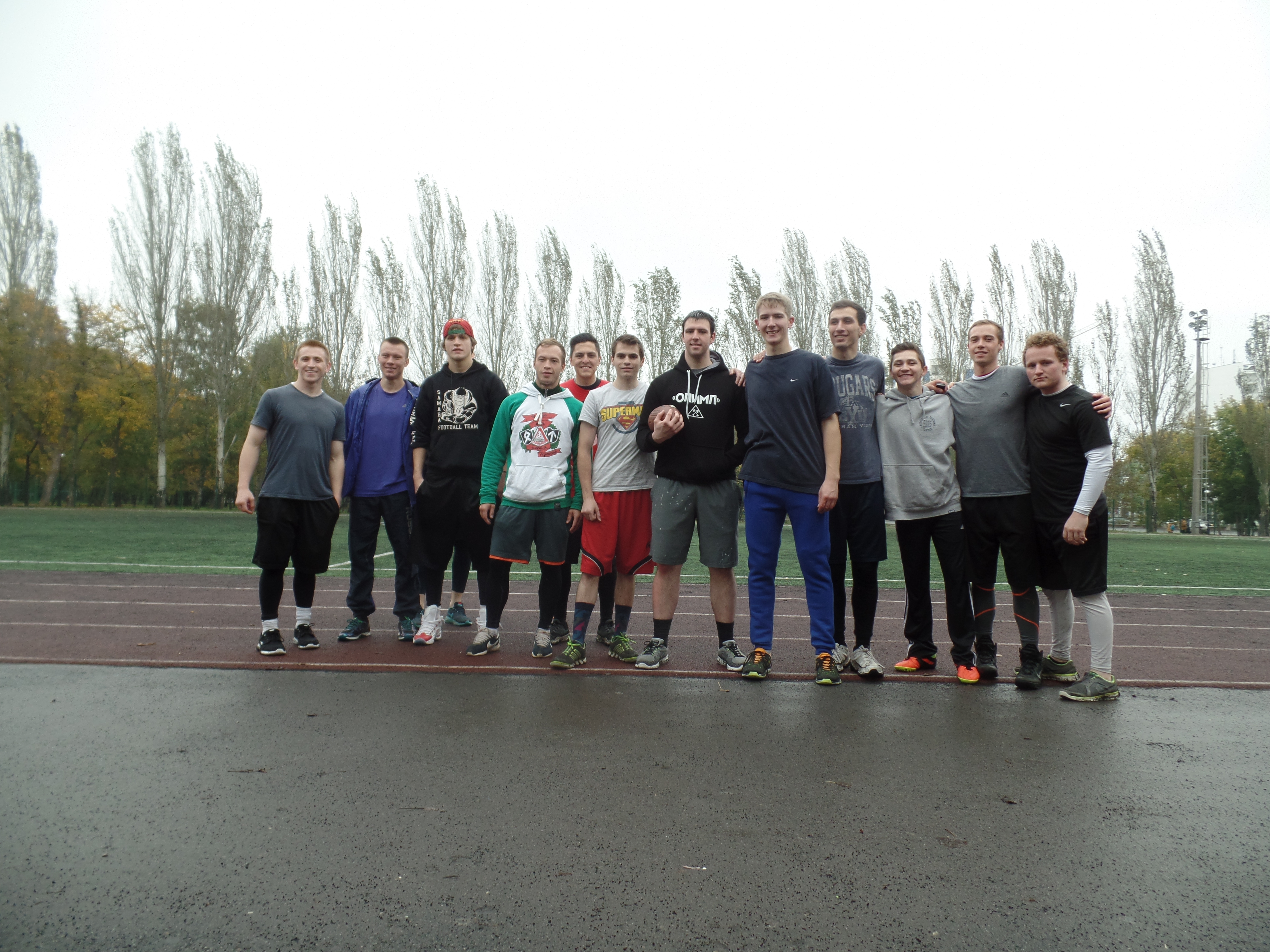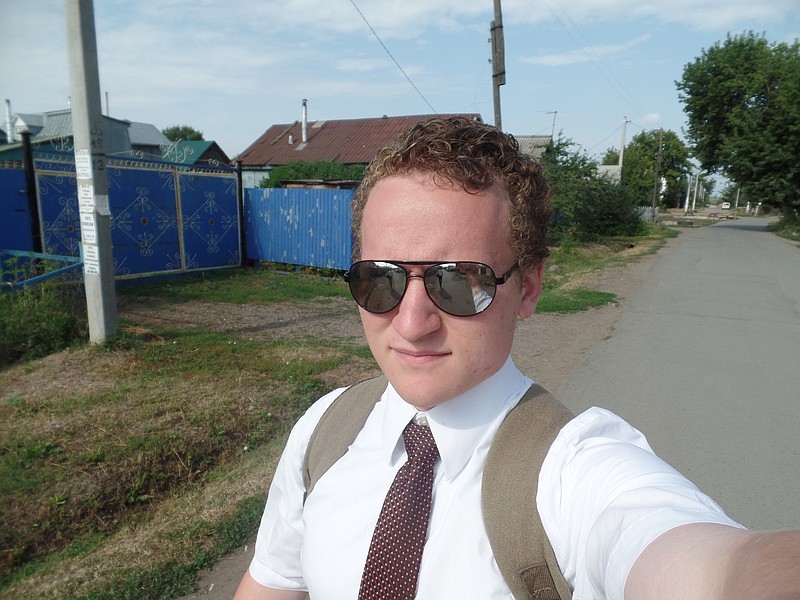 A graduate of Ringgold High School, Chris Hemrick, last one on the right, says that, while Russians instinctively "are not very trusting of foreigners," he and the other missionaries were pretty successful at getting them to listen to what they had to say, take some Mormon literature and, in some cases, attend a discussion group about the religion or even a Mormon church service.
A graduate of Ringgold High School, Chris Hemrick, last one on the right, says that, while Russians instinctively "are not very trusting of foreigners," he and the other missionaries were pretty successful at getting them to listen to what they had to say, take some Mormon literature and, in some cases, attend a discussion group about the religion or even a Mormon church service.Yarovaya Law
Here are the details of Russia’s “Anti-Terrorism” law:› Requires cellular and internet providers to store all communications data for six months and all metadata for three years in the interests of the security services.› Cryptographic backdoors are mandatory in all messaging applications.› Proselytizing, preaching, praying or disseminating religious materials outside of “specially designated places” is banned, except for the Russian Orthodox Church.› Failure to report to law enforcement authorities that someone else “has been planning, is perpetrating, or has perpetrated” certain types of crime is criminal.Source: www.theguardian.com
The job was going well for Chris Hemrick after he arrived in Russia in February 2015.
As a missionary for the Church of Jesus Christ of Latter Day Saints, better known as Mormons, he was out on the streets, in parks, in grocery stores, basically just out and about in several cities, talking to everyday Russians about his church and its beliefs.
"When we got there, we did the normal thing, walk around and talk to people who were interested," the 20-year-old Hemrick says. "We found hundreds of people that were interested."
Hemrick, a graduate of Ringgold High School, says that, while Russians instinctively "are not very trusting of foreigners," he and the other missionaries were pretty successful at getting them to listen to what they had to say, take some Mormon literature and, in some cases, attend a discussion group about the religion or even a Mormon church service.
That all changed last July when a new anti-terrorism law went into effect in Russia. With proselytizing apparently viewed as terrorism by the government, missionaries found themselves up against the wall.
Known as the Yarovaya Law after Irina Yarovaya, the head of Russia's Parliamentary Committee for Security and Anti-Corruption, it severely restricts "missionary activity" in the country. Under its rules, missionaries of any religion - with the exception of the Russian Orthodox Church - cannot share the doctrines of their faith or hand out any information unless they're inside church buildings officially registered with the government. Even private homes are off limits for religious discussions.
According to the law, it's illegal to carry out "the activity of a religious association, aimed at disseminating information about its beliefs among people who are not participants (members, followers) in that religious association, with the purpose of involving these people as participants (members, followers)." Disobeying can lead to fines of $760 per missionary and $15,500 for the denomination. Missionaries can also be deported, which happened to some of the people in Hemrick's group.
While you can express a belief in God and invite people to come to church buildings to learn more that's as far as you can go, says Hemrick, who came home in December. And you must be careful to not discuss a religion's teachings with anyone who's not already a member of that particular church.
"We were allowed to strike up friendly conversations," he says, but not much else.
Hemrick, a freshman in biology at Brigham Young University in Salt Lake City, says that, prior to the law, he and other missionaries were able to get five to 10 people a month interested in learning more about Mormonism.
"After the law, that number went down tremendously," he says, estimating that they would land one or two people a month.
Immediately after the law went into effect, officials with the Mormon Church said they will obey the law, but will not call missionaries home from Russia.
"The Church will honor, sustain and obey the law," the statement read. "Missionaries will remain in Russia and will work within the requirements of these changes. The Church will further study and analyze the law and its impact as it goes into effect."
The Russian Orthodox Church has for decades exercised a heavy hand in directing Soviet policy, both social and political. It has determinedly worked to lessen the spread of other churches in the country.
Hemrick believes the Russian Orthodox church was directly involved in getting the anti-religion clause added to the Yarovaya bill.
"They are highly active in the government," he says, and joining another church is seen as being disloyal to both the Russian Orthodox Church and the country itself.
But even some members of the Russian Orthodox Church are railing against the law.
Newsweek reported that Archbishop Andrew Maklakov, administrator of the Russian Orthodox Autonomous Church of America, said the Soviet government, in concert with the Russian Orthodox Church, "has increasingly sought to harass, persecute, and destroy any religious organization that it might consider competition to its own 'state church.'"
"This law is but another weapon in the hands of the neo-Soviet Russian state to dismantle and destroy our church in a way that appears lawful to Western observers and critics," Maklakov said.
Alexei Smirnov, president of the Russian Baptist Union, wrote a formal letter to Russian President Vladimir Putin to express his outrage over the law.
"The draft law is anti-constitutional, as it violates the basic rights of its citizens and does not coincide with the current Constitution of the Russian Federation," Smirnov wrote. "There was no public discussion of the draft law. In such a way, religious organizations lacked even the opportunity to express their opinion."
Hemrick says none of the Mormon missionaries believed the law would pass before the official vote. Once it went into effect, "we were in limbo, not knowing what to do." But they decided that "you did the same thing you did before - be friendly with people."
He's still in contact with some of his fellow missionaries in Russia and says they've adapted to the new situation.
"Things are going pretty well for them," Hemrick says, and missionaries are still meeting with Russians interested in Mormonism.
"They're gaining speed and seeing more progress."
Contact Shawn Ryan at sryan@timesfreepress.com or 423-757-6327.
